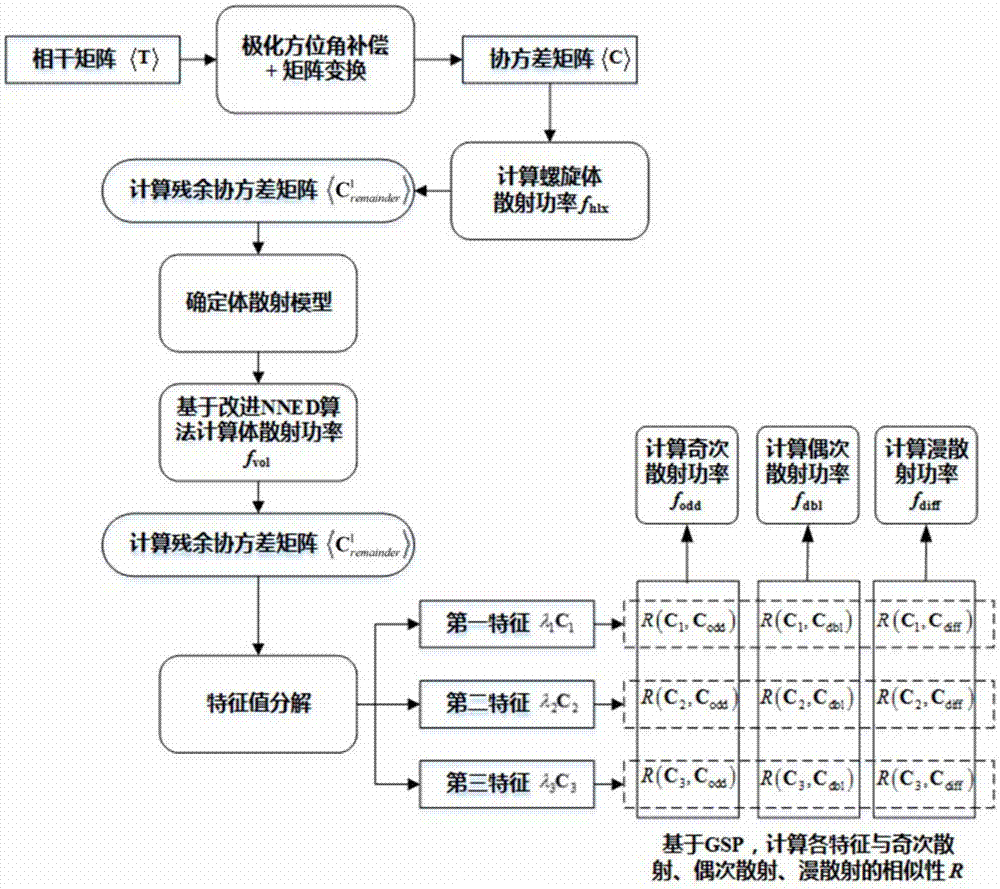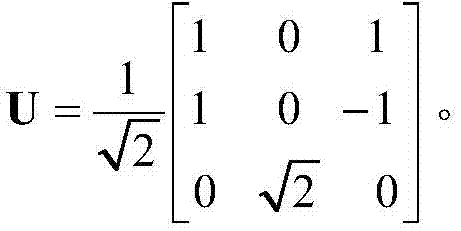Polarimetric SAR multi-component target decomposition method
A target decomposition and multi-component technology, applied in the field of polarimetric SAR multi-component target decomposition, can solve the problem that the number of parameters to be obtained is more than the number of equations
- Summary
- Abstract
- Description
- Claims
- Application Information
AI Technical Summary
Problems solved by technology
Method used
Image
Examples
Embodiment Construction
[0059] The present invention will be described in further detail below in conjunction with the accompanying drawings.
[0060] figure 1 It is a flowchart of a polarimetric SAR multi-component target decomposition method described in the present invention. This polarimetric SAR multi-component target decomposition method, on the basis of the previous four-component decomposition algorithm, adds an additional diffuse scattering mechanism that may come from terrain or rough surfaces as the fifth decomposition component, that is, the fully polarimetric SAR coherence matrix T Or the covariance matrix C is decomposed into a linear weighted sum of five scattering components including odd scattering, even scattering, volume scattering, helical scattering and diffuse scattering. The algorithm uses the improved NNED (NonnegativeEigenvalueDecomposition) method to solve the volume scattering power, and directly adopts the corresponding odd-order scattering, even-order scattering and diff...
PUM
 Login to View More
Login to View More Abstract
Description
Claims
Application Information
 Login to View More
Login to View More - R&D
- Intellectual Property
- Life Sciences
- Materials
- Tech Scout
- Unparalleled Data Quality
- Higher Quality Content
- 60% Fewer Hallucinations
Browse by: Latest US Patents, China's latest patents, Technical Efficacy Thesaurus, Application Domain, Technology Topic, Popular Technical Reports.
© 2025 PatSnap. All rights reserved.Legal|Privacy policy|Modern Slavery Act Transparency Statement|Sitemap|About US| Contact US: help@patsnap.com



